1. Monica Lewinsky Affair – Bill Clinton’s Impeachment Saga

The Monica Lewinsky affair, one of the most notorious scandals in U.S. presidential history, began in 1995 when the White House intern became romantically involved with President Bill Clinton. The relationship, which took place while Clinton was in office, remained a secret for several years. However, in 1998, the story broke when independent counsel Kenneth Starr began investigating Clinton’s affair with Lewinsky and whether he had lied under oath about it during a deposition in a sexual harassment lawsuit filed by former Arkansas state employee Paula Jones. Clinton denied the affair, famously stating, “I did not have sexual relations with that woman.”
As the investigation progressed, it became clear that Clinton had lied, and he was charged with perjury and obstruction of justice. The scandal quickly escalated, leading to Clinton’s impeachment by the House of Representatives in December 1998. The case then went to the Senate, where Clinton was acquitted, with the Senate falling short of the two-thirds majority needed to remove him from office. Despite being cleared by the Senate, the affair left a permanent stain on Clinton’s presidency, dividing the nation and causing a sharp decline in his public image. The affair also sparked widespread debates about the morality of public officials and the power of the media in shaping political narratives.
2. Watergate – Richard Nixon’s Downfall
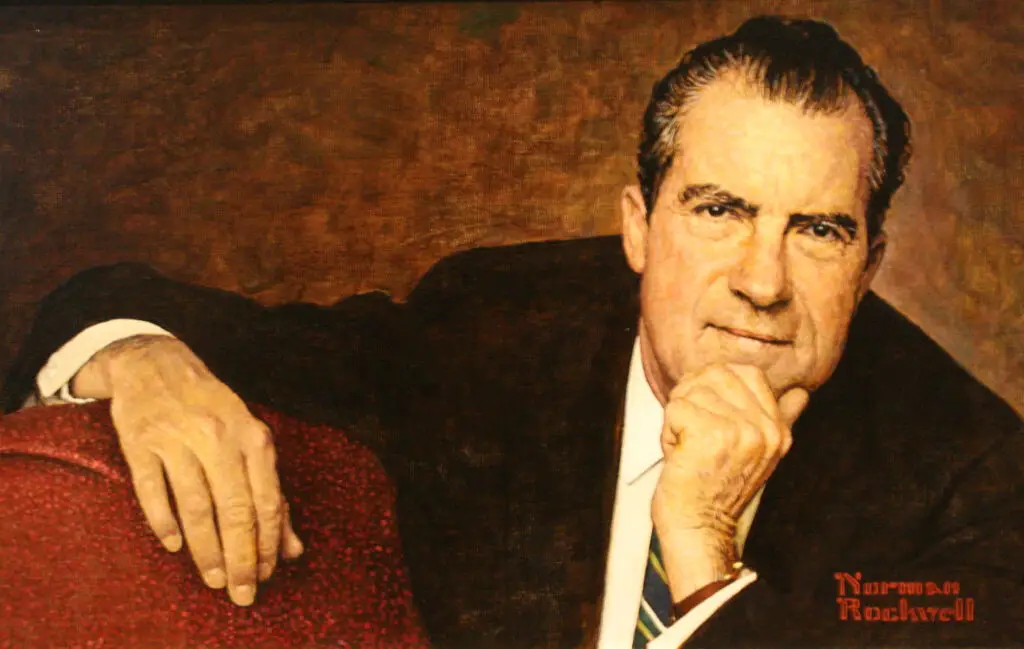
Watergate is arguably the most significant political scandal in U.S. history, resulting in the only presidential resignation to date. The scandal began in 1972 when five men broke into the Democratic National Committee headquarters at the Watergate complex in Washington, D.C. The burglars were attempting to wiretap the Democratic Party’s communications, but the situation escalated when the Nixon administration attempted to cover up the involvement of White House officials in the crime. Investigative journalists Bob Woodward and Carl Bernstein of The Washington Post played a critical role in uncovering the truth, revealing a massive conspiracy within the Nixon administration to obstruct justice.
The scandal led to a series of revelations, including secret recordings of conversations in the White House that implicated Nixon in the cover-up. As the investigation intensified, it became clear that Nixon had been involved in the scheme to protect his re-election campaign. In August 1974, facing imminent impeachment and certain removal from office, Nixon became the first U.S. president to resign. His resignation did little to quell public distrust in the government, and the scandal left a long-lasting impact on American politics, with the country grappling with questions about corruption, accountability, and the limits of presidential power.
3. Teapot Dome Scandal – Warren G. Harding’s Cabinet Corruption
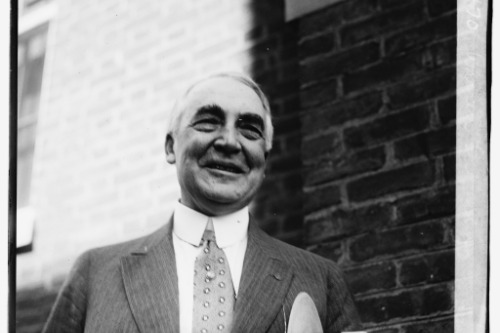
The Teapot Dome scandal, which came to light during the 1920s, was a high-profile corruption scandal during President Warren G. Harding’s administration. The scandal centered around the leasing of federal oil reserves, particularly the Teapot Dome reserve in Wyoming, to private oil companies in exchange for bribes. Harding’s Secretary of the Interior, Albert Fall, was at the heart of the scheme. Fall leased the reserves to oil magnates without competitive bidding and received significant bribes in return. The scandal was named after the Teapot Dome oil field, where the illegal transactions took place.
The truth about the scandal was uncovered through investigative journalism and congressional hearings, leading to the conviction of Fall, who became the first cabinet member in U.S. history to be imprisoned for corruption. While Harding himself was never directly involved in the deals, the scandal cast a shadow over his presidency. Harding’s administration was marked by widespread corruption, and the Teapot Dome affair exemplified the cronyism and lack of accountability that characterized much of his time in office. Harding’s legacy is forever tarnished by this scandal, despite his otherwise popular presidency.
4. Andrew Johnson’s Impeachment – Defying Reconstruction
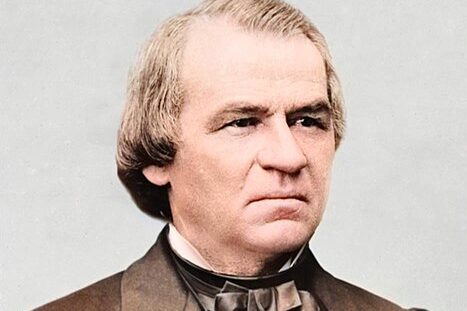
Andrew Johnson’s presidency, following the assassination of Abraham Lincoln, was marked by intense political conflict. Johnson, who was a Southern Democrat, opposed many of the key elements of Reconstruction, which sought to rebuild the South and provide civil rights to newly freed African Americans. His resistance to the Reconstruction Acts and his frequent vetoes of Congressional legislation made him a target of Congressional Republicans. Tensions came to a head when Johnson attempted to remove Edwin M. Stanton, the Secretary of War, without Senate approval, violating the Tenure of Office Act, a law passed by Congress to restrict presidential power in such matters.
In 1868, the House of Representatives impeached Johnson on charges of violating the Tenure of Office Act and abusing his presidential powers. The case went to the Senate, where Johnson narrowly avoided removal from office by just one vote. Despite his acquittal, the impeachment set a dangerous precedent for political conflict, and Johnson’s contentious presidency is remembered as a pivotal moment in post-Civil War American history. His actions fueled deep divisions between the executive and legislative branches, leaving a legacy of tension in U.S. politics.
5. Iran-Contra Affair – Ronald Reagan’s Shadowy Dealings

The Iran-Contra affair was a political scandal that surfaced during Ronald Reagan’s second term in office. The scandal involved a covert operation in which senior members of the Reagan administration secretly facilitated the sale of arms to Iran, a country that was under an arms embargo, in exchange for the release of American hostages held by Iranian-backed militants. The proceeds from these illegal arms sales were then used to fund Contra rebels in Nicaragua, who were fighting the Sandinista government, a Marxist regime that had come to power in 1979.
The operation was not authorized by Congress, and its exposure in 1986 led to public outrage. Reagan initially denied any involvement, but investigations revealed that members of his administration, including National Security Advisor John Poindexter and Lieutenant Colonel Oliver North, were deeply implicated. The scandal raised serious questions about the Reagan administration’s commitment to transparency and the rule of law. Though Reagan himself was never charged, several of his aides were convicted, and the affair left a lasting mark on his presidency, particularly in terms of public trust in government.
6. Jefferson’s Affair with Sally Hemings

The affair between President Thomas Jefferson and Sally Hemings, an enslaved woman who lived on Jefferson’s Monticello plantation, was not revealed until much later in history but has become one of the most controversial aspects of Jefferson’s legacy. Hemings was believed to have had several children with Jefferson, though the relationship was marked by a stark power imbalance—Jefferson, as her owner, wielded complete control over her life. The affair remained a closely guarded secret during Jefferson’s lifetime, and there were rumors and whispers about the nature of their relationship throughout his presidency.
The revelation of this relationship in the 20th century was a shock to many, as it contradicted Jefferson’s public image as a champion of liberty and equality. The power dynamics of slavery and the hypocrisy of a man who authored the Declaration of Independence while owning slaves have led to ongoing debates about Jefferson’s legacy. Though DNA testing in the late 1990s confirmed that Jefferson was the father of Hemings’ children, the affair remains a complex and controversial topic in American history, shedding light on the darker aspects of the nation’s founding.
7. Ulysses S. Grant’s Credit Mobilier Scandal
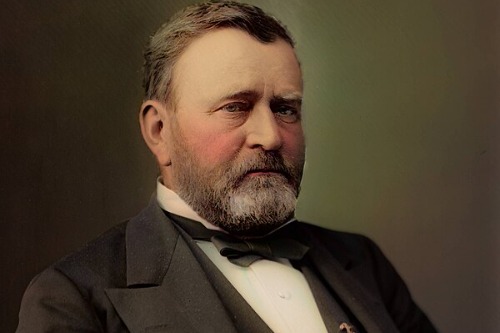
The Credit Mobilier scandal, which took place during Ulysses S. Grant’s presidency in the 1860s, was a major corruption scandal involving members of Congress and high-ranking officials in Grant’s administration. The scandal revolved around the construction of the transcontinental railroad, where politicians and businessmen conspired to profit from inflated contracts. The Union Pacific Railroad’s chief financial officer, Thomas Durant, used a construction company called Credit Mobilier to secure lucrative government contracts while secretly bribing Congressmen to ensure favorable legislation.
Although Grant himself was not directly involved in the scandal, several members of his cabinet and political allies were implicated. The scandal tarnished Grant’s presidency, which was already struggling with corruption in other areas. The Credit Mobilier affair was emblematic of the political cronyism and graft that plagued the Reconstruction era, and it served as a reminder of the dangers of unchecked political influence. Grant’s administration, despite his heroic military reputation, is often criticized for its failure to address widespread corruption effectively.
8. The XYZ Affair – John Adams’ Foreign Diplomacy Drama
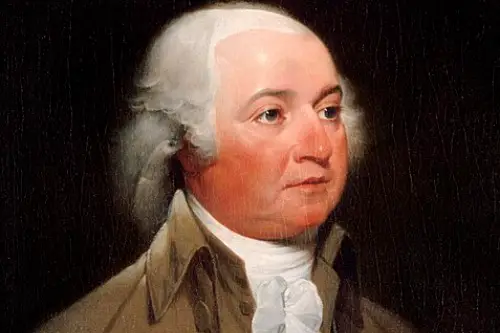
The XYZ Affair, which occurred during John Adams’ presidency in the late 18th century, was a diplomatic scandal that strained relations between the United States and France. In 1797, American diplomats were sent to France to negotiate with the French government after France began seizing American ships. However, the French foreign ministers, later referred to as X, Y, and Z, demanded bribes and loans from the American envoys in exchange for negotiations. The U.S. representatives, outraged by the demands, refused to comply, and the affair was exposed to the public.
The scandal caused an uproar in the United States, leading to a surge of anti-French sentiment. The revelation of French attempts at bribery damaged U.S.-French relations and led to a quasi-war between the two countries. The XYZ Affair also had political ramifications, galvanizing the Federalist Party, which was in power at the time, and casting a shadow over Adams’ presidency. Though the affair did not lead to full-scale war, it highlighted the complexities of foreign diplomacy and the delicate balance required in international relations.
9. Andrew Jackson and the Petticoat Affair

The Petticoat Affair, which occurred during Andrew Jackson’s presidency in the 1820s, is one of the most unusual and socially charged scandals in U.S. political history. The controversy revolved around Peggy Eaton, the wife of Jackson’s Secretary of War, John Eaton. Peggy, a former tavern keeper, was widely shunned by Washington society due to rumors that she had been involved in an extramarital affair with her first husband, which many believed was the cause of his death. When she married John Eaton, the couple became the subject of scandalous gossip, and many members of Jackson’s cabinet, along with their wives, refused to accept her into high society.
Jackson, who had a deep loyalty to his cabinet and their families, especially to the Eatons, found himself at the center of a bitter social and political dispute. The situation escalated when Jackson’s cabinet members, many of whom had their wives involved in the social exclusion of Peggy, resigned in protest of Jackson’s defense of her. This upheaval, known as the “Eaton Affair” or “Petticoat Affair,” led to significant turmoil within Jackson’s administration. Although the scandal was primarily social in nature, it had far-reaching political consequences, contributing to the breakdown of Jackson’s cabinet and a shift in the balance of power within his administration. The Petticoat Affair highlighted Jackson’s determination to defend those he believed were unjustly maligned, but it also exposed the deep divisions within his government.
10. Rutherford B. Hayes and the Compromise of 1877
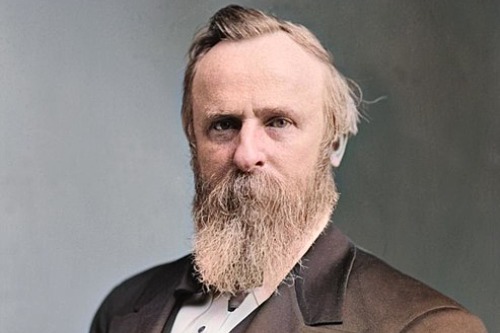
The 1876 presidential election, which pitted Rutherford B. Hayes against Samuel J. Tilden, remains one of the most contentious elections in American history. Tilden won the popular vote and appeared to have secured enough electoral votes to win. However, disputed results in several key states led to a political crisis that threatened to tear the nation apart, especially in the aftermath of the Civil War. To resolve the crisis, a secret backroom deal known as the Compromise of 1877 was struck. In exchange for giving Hayes the presidency, Republicans agreed to withdraw federal troops from the South, effectively ending Reconstruction.
The Compromise of 1877 is often regarded as a scandal because it disenfranchised Black Americans in the South, as the withdrawal of federal troops allowed white supremacist groups like the Ku Klux Klan to regain control over state governments. The compromise marked the end of Reconstruction and led to the establishment of Jim Crow laws that enforced racial segregation for decades to come. While Hayes technically won the election and was inaugurated as president, the political deal made under the table had long-lasting and devastating effects on civil rights in the South. The compromise remains one of the most controversial decisions in American history, as it placed party politics above racial equality and justice.
11. Grover Cleveland’s Love Child
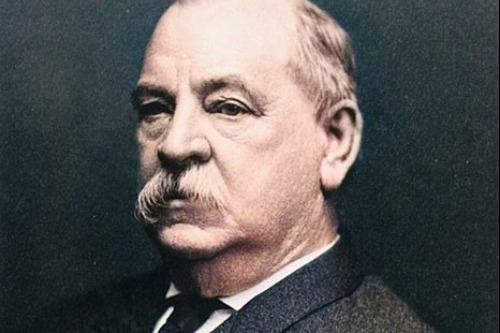
In the 1884 presidential election, Grover Cleveland, the Democratic nominee, faced an unexpected scandal when it was revealed that he had fathered an illegitimate child years earlier. Cleveland’s opponent, James G. Blaine, and his supporters seized upon the revelation, using it as a central issue in their campaign against Cleveland. Cleveland had reportedly paid child support for the child, but the affair was not widely known until an expose came to light during the election. His opponents used a catchy slogan, “Ma, Ma, where’s my Pa?” to attack Cleveland’s character, hoping to sway voters.
Cleveland responded to the scandal with honesty, admitting his past and taking full responsibility for the situation. His frankness in the face of the allegations was unusual for a politician of the time and ultimately worked in his favor. While the scandal may have cost him some votes, Cleveland’s decision to confront the issue directly helped to restore his public image. He went on to win the election and became the only president in U.S. history to serve two non-consecutive terms. Despite the scandal, Cleveland’s reputation remained relatively intact, and he is remembered as one of the more honest and effective presidents of his era.
12. JFK and Allegations of Organized Crime Ties
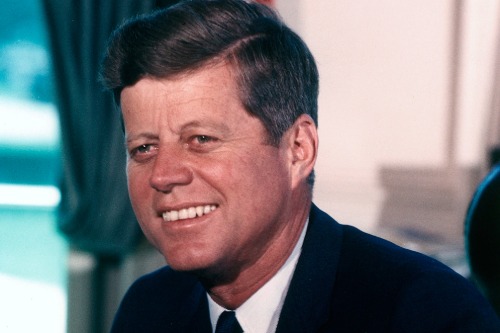
John F. Kennedy’s presidency, marked by its youthful energy and promise of a “New Frontier,” was not without its share of scandals. One of the most persistent rumors surrounding Kennedy involved his alleged ties to organized crime. Kennedy’s father, Joseph P. Kennedy, was rumored to have had dealings with mob figures, and these connections were said to have played a role in JFK’s successful 1960 presidential campaign. Additionally, several individuals with mafia ties, including notorious figures like Chicago’s Sam Giancana, were believed to have been involved in various aspects of the Kennedy family’s political rise.
Although there was never any solid evidence linking JFK directly to organized crime, the rumors persisted throughout his presidency, particularly as his administration began cracking down on the mafia in the early 1960s. Robert F. Kennedy, JFK’s brother and Attorney General, led an aggressive campaign against organized crime, which led to a strained relationship between the Kennedy family and the mafia. The allegations of mafia ties never resulted in any formal investigation or legal action, but the rumors cast a shadow over Kennedy’s image and contributed to the mystique surrounding his presidency. These allegations, combined with JFK’s secret health issues, fueled suspicions that his administration was more vulnerable than it appeared on the surface.
13. Spygate – George W. Bush’s WMD Claims
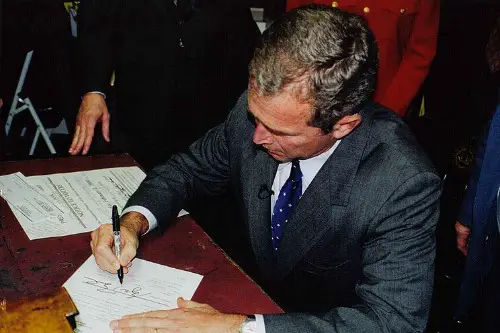
The Iraq War, which began in 2003 under President George W. Bush, was deeply influenced by allegations that Saddam Hussein’s regime was in possession of weapons of mass destruction (WMDs). The Bush administration made these claims a central justification for the invasion of Iraq, despite limited evidence to support the assertion. The controversy surrounding the weapons claims was exacerbated when no WMDs were found after the invasion, leading to widespread accusations that the Bush administration had either exaggerated or fabricated the evidence to justify military action.
The “Spygate” controversy was linked to the release of intelligence reports, some of which were later found to be flawed or manipulated, raising questions about the reliability of the intelligence that had been used to justify the war. The intelligence community’s failure to produce concrete evidence of WMDs led to public outcry, and the scandal remains one of the defining issues of Bush’s presidency. Critics argued that the war was based on faulty information and that the administration had misled the American public and the international community. The failure to find WMDs in Iraq damaged Bush’s credibility and left a lasting scar on his legacy, as the war and its aftermath led to significant political, social, and economic repercussions.
14. Barack Obama’s “Fast and Furious” Controversy

The “Fast and Furious” scandal, which came to light during Barack Obama’s presidency, involved a controversial operation conducted by the Bureau of Alcohol, Tobacco, Firearms, and Explosives (ATF) in 2006. The operation aimed to track firearms sold to suspected straw purchasers—individuals who bought guns legally with the intention of passing them on to criminals. However, the operation quickly spiraled out of control when some of the firearms ended up in the hands of Mexican drug cartels, resulting in the death of a U.S. Border Patrol agent, Brian Terry, in 2010.
The scandal raised serious questions about the oversight and management of federal law enforcement agencies. While President Obama was not directly involved in the operation, his administration faced significant criticism for failing to intervene and halt the flawed program before it led to such deadly consequences. In 2012, House Republicans voted to hold Attorney General Eric Holder in contempt of Congress for failing to provide documents related to the operation. The scandal became a major point of contention between the Obama administration and congressional Republicans, further polarizing U.S. politics. Despite the controversy, Obama’s approval ratings remained relatively high, but the scandal underscored the risks of covert operations and the importance of accountability within law enforcement agencies.
15. Donald Trump’s Ukraine Call and Impeachment

In 2019, President Donald Trump was embroiled in a scandal that ultimately led to his first impeachment. The controversy centered around a phone call between Trump and Ukrainian President Volodymyr Zelensky, in which Trump allegedly pressured Zelensky to investigate Joe Biden’s son, Hunter Biden, who had business dealings in Ukraine. The call, which took place on July 25, 2019, became public when a whistleblower complaint was filed, leading to an investigation by the House of Representatives.
The inquiry revealed that Trump had withheld military aid from Ukraine as leverage to secure an investigation into the Bidens. Critics argued that this was an abuse of power, as the president used U.S. foreign policy to benefit his personal political agenda. Trump was impeached by the House of Representatives on charges of abuse of power and obstruction of Congress, but he was acquitted by the Senate in early 2020. The impeachment sparked intense political division, with Republicans largely supporting Trump and Democrats condemning his actions as corrupt. The scandal raised important questions about the use of executive power and the limits of presidential authority, while also exposing deep fractures within American politics.
History shows us that scandals don’t discriminate based on political party or era—they’re part of the human flaws that come with power. While each case is different, they all serve as cautionary tales for leaders and citizens alike.


